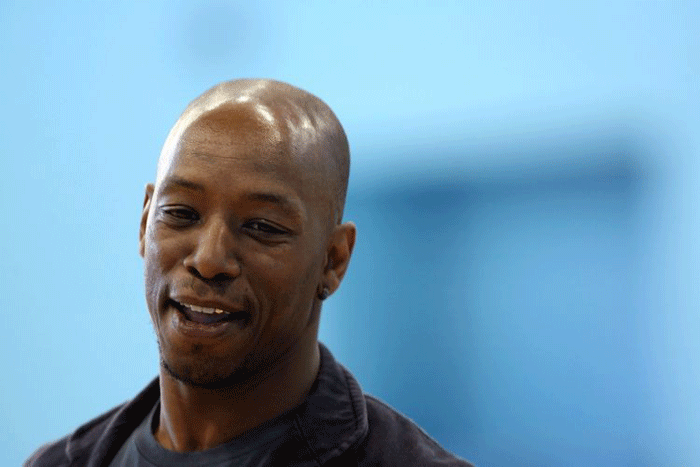Passed/failed: An education in the life of Ian Wright, footballer and broadcaster
'I was told that I was thick'

Your support helps us to tell the story
From reproductive rights to climate change to Big Tech, The Independent is on the ground when the story is developing. Whether it's investigating the financials of Elon Musk's pro-Trump PAC or producing our latest documentary, 'The A Word', which shines a light on the American women fighting for reproductive rights, we know how important it is to parse out the facts from the messaging.
At such a critical moment in US history, we need reporters on the ground. Your donation allows us to keep sending journalists to speak to both sides of the story.
The Independent is trusted by Americans across the entire political spectrum. And unlike many other quality news outlets, we choose not to lock Americans out of our reporting and analysis with paywalls. We believe quality journalism should be available to everyone, paid for by those who can afford it.
Your support makes all the difference.Ian Wright MBE, 44, played football for Crystal Palace, Arsenal and England. He is now a television pundit and columnist and has launched the 2008 Fitter Schools UK Challenge; applications to take part should be made by the end of March ( www.fitterschools uk.com).
Very early on, at Gordonbrock Primary School in Brockley, south-east London, I remember playing in the little playground and missing my brother, who I could see through the fence in the big playground. I always wanted to play in the big playground!
When I was seven, we moved to the Honor Oak Estate, a short distance away from Brockley, where I joined the second year at Turnham Primary School. It was at Turnham that I realised for the first time that I was good at something. Sport was the main focus at the school, but my football ability brought about some problems.
When you join a school halfway through, the girls take notice of the new guy and it becomes a fight for attention. There was a guy on the estate who was a good footballer. He was all right on the block, but when we got to school, he changed. The bullies like him were jealous – it was a football mafia – and I had to have a couple of fights.
At home, I didn't get on with my step-dad and was disruptive at school. I found maths difficult and was teased by people who found it easy. They'd tell me "You're thick!" – that's the reason I was so disruptive. It was my way of dealing with it. They used to send me out of the classroom to Mr Pigden's – which was brilliant. Sidney Pigden was a great teacher, my mentor and my major, main man. I did lessons with him in his room next to the library and he gave me the confidence I needed and I ended up becoming a monitor. I admit I wasn't always an angel, but my only real problems were at the start. I enjoyed my time at Turnham.
The first day at Samuel Pepys Comprehensive [later renamed Hatcham Wood] was different. This time round, I wasn't the new boy joining halfway through term. Everyone was on the same level. It was amazing: we hadn't mixed with people from New Cross, Peckham and Deptford before, but now we were, and I loved them.
I still struggled with maths, but tried hard not to be so disruptive. Mr Dixon was a brilliant English teacher. He had some sort of acting background and when he read to us he did all the voices. I was very good at French; I could mimic people very well, which may have helped with my confidence. Sport was great and I was in all the teams: football, cricket and basketball, which the school was very good at.
When I was 14, I ran away from home and went to live with a friend; yes, my mother knew where I was. I didn't do well at GCSEs. In fact, I didn't even take my mock exams and didn't do enough homework or revision. I left at 15. My mother was very disappointed.
I know that if I had my time at school again, I'd do it differently. I drum it into my own kids how important education is. I say, "Just work hard and get on with it!" I was lucky and able to get into sport, but otherwise I'd probably have had a life of manual labour.
I didn't get into professional sport at 16, like most did. From the age of 12, I had been writing to all the London football clubs. I went for trials, but they always said that I wasn't tall enough, or whatever. Well, I'm tall enough now! It was just an excuse. It's hard to take; before I got my break at 22 I was just playing Sunday football.
We're trying to get 5,000 schools involved in the 2008 Fitter Schools UK Challenge. I think there are more distractions now, more things to do than when I was at school; we had to do running about and stuff!
Join our commenting forum
Join thought-provoking conversations, follow other Independent readers and see their replies
Comments